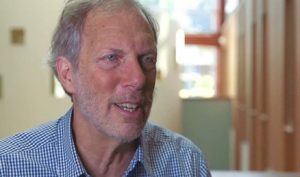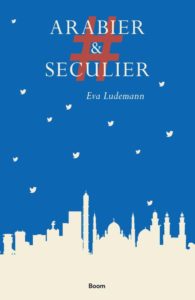
Prof.dr. Robert Pollin
As the COVID-19 virus spreads, the U.S. economy has begun to crumble like a house of cards.
The sudden collapse of the economy is revealing how the “great economy” that Donald Trump has been boasting about on Twitter for the past three years was in fact a mirage caused by wild Wall Street rallies, and boosted by Trump’s massive tax cuts and deregulatory efforts contrast which rolled back all kinds of environmental standards with total disregard for the impact on public health and the climate crisis.
As the shutdowns orchestrated to stop the spread of the novel coronavirus create financial ruin for individuals and businesses across the country, the economy is “teetering on collapse,” points out Robert Pollin, distinguished professor of economics and co-director of the Political Economy Research Institute at the University of Massachusetts at Amherst, in this exclusive interview for Truthout.
But Pollin also argues that — with the right decisions — we have the means not only to rescue the complete collapse of the economy, but also to move in the direction of a just, equitable and sustainable socioeconomic order. The following transcript has been lightly edited for length and clarity.
C.J. Polychroniou: Can you give a succinct summary of the myths and realities of Trump’s economy from the day he took office and up until the outbreak of COVID-19?
Robert Pollin: Throughout his presidency, until basically last week, Trump’s mantra on the economy is that conditions have never, ever been better. This was always a ludicrous assertion. But as distinct from many other of Trump’s assertions, this one was based on at least some slivers of evidence, with the two critical slivers being the stock market and the unemployment rate. It is true, first of all that, as of last July, the U.S. stock market had reached an historic high, with the S&P 500 index exceeding 3,000 for the first time. It is also true that the official unemployment rate had hit a record low of 3.5 percent as of February.According to the Bureau of Labor Statistics, the last time the official U.S. unemployment rate was below 3.5 percent was 1953.
But the stock market rise reflected, more than anything, a combination of (1) companies deliberately inflating their own stock prices through buying back their shares on the open market; and (2) the reinforcement, with Trump, of the upward distribution of income and wealth that has proceeded now for 40 years under neoliberalism. For example, with Trump’s signature across-the-board tax cuts in 2017, the benefits for the poorest 20 percent of the population amounted to an average of $100 while the richest 1 percent received $55,000. Over the next decade, the poorest 20 percent would then see their taxes go up while the richest 1 percent would benefit from further cuts.
With the historically low official unemployment rate, if we add up the people who were working part-time but wanted full-time jobs as well as those who have temporarily given up looking for work, plus we account for the share of people who have dropped out of the labor force following the 2007-09 Great Recession, we are now at a more realistic unemployment rate of nearly 10 percent. This is about 16 million people, roughly equal to the entire populations of New York City, Los Angeles and Chicago. On top of this, wages had only begun to start inching up with the unemployment rate at its historically low level. This is after 40 years of most working people experiencing falling or stagnating real wages.
In short, our current economy was never anything close to the halcyon image projected by Trump until this week. In any case, all of those rosy descriptions are now a thing of the past.
How has the novel coronavirus affected the U.S. economy? Do you think there are both short-term and long-term impacts?
The coronavirus is devastating the U.S. economy as I write. I am certainly not focused here on the stock market having fallen by roughly 20 percent since its peak on February 14. More to the point: If we add up current employment in the hospitality and leisure industries — including restaurants, bars and hotels — plus retail trade, plus transportation, we are talking about 38 million jobs. That is roughly 25 percent of all employment in the U.S. economy. Now let’s assume, conservatively, that half of these people are facing layoffs or at least extended furloughs. That’s close to 20 million people. Unless the government does something dramatic, this, by itself, could easily raise the official unemployment rate above 10 percent in a matter of weeks, i.e. to a point higher than the worst phase of the Great Recession. The effective percentage of people experiencing serious employment stresses — i.e. lost paychecks from furloughs or reductions in hours — could easily be at least double that figure, i.e. 20 percent or above. These back-of-the-envelope calculations do not even take account of the fact that government tax revenues are plunging with people losing income and cutting back on spending. As governments lose tax revenues, how are they then going to find the funds to pay teachers, firefighters, police officers and even health care workers?
All of these are not merely “short-term” events. They are immediate effects, happening right now, at a breakneck pace. There will also be deep longer-term effects. But what exactly these will be will depend on how we intervene politically now in handling the crisis. For example, the Federal Reserve has already announced that it is prepared to bail out Wall Street yet again, under the same type of interventions that they conducted during the 2007–09 crisis. But maybe this time we can successfully make a case that at least a significant share of the financial markets need to be nationalized, not just bailed out. A wholesale financial market bailout means that Wall Street continues to operate under a perverted variant of socialism that has emerged under neoliberalism — i.e., Wall Street’s risks are borne by society as a whole while their profits remain all for themselves.
The stock market rallied big time last week after Trump’s announcement of a national emergency on account of COVID-19. But then the market plunged again last Monday, experiencing its worst day since the 1987 crash. How significant are such stock market swings from a macroeconomic standpoint?
Whatever happens with the stock market does not, by itself, cause the economy to perform better or worse. The fact is, as I noted above, the stratospheric level that the stock market had reached before the coronavirus took hold resulted from both market manipulations by corporations buying back their own shares, plus the upward redistribution of income. So an orderly, long-term decline in the stock market would be a good thing if it meant a reduction in market manipulation and a reversal of the long-term rise of inequality. But the market volatility that is occurring now is reflecting the expectation that the real economy — which includes people’s incomes, jobs, pensions and health care coverage, not just stock prices — is teetering on collapse. If, for example, the official unemployment rate were to rise to 10 percent or above, there is no amount of fancy stock-buyback schemes, or further tax cuts for the rich, that can compensate for an overall decline in economic activity of this magnitude. An economy with an official unemployment rate of 10 percent will produce huge falls in real productive investments in the economy by private businesses — i.e.,people opening new businesses or purchasing equipment and hiring people to expand their existing business operations. When this happens, stock market prices will continue falling, as one indicator of what is happening in the real economy.
Given that we are clearly in the midst of a public health and economic crisis alike, what realistic measures are there available to policymakers in order not simply to stave off an economic collapse, but also to put the U.S. economy on a truly sustainable and equitable track?
Step one must entail doing everything possible to deal with the public health emergency. That means, effectively, that Medicare for All must be put into operation right away, at least until the crisis conditions have lifted. That is, everyone needs to be able to get tested and treated for the novel coronavirus, without facing any kinds of financial concerns whatsoever. That is the only way in which the spread of the virus has a chance of being controlled.Once the crisis has past, it should then have become obvious that Medicare for All needs to be in place all the time. We will have to make that case forcefully after the crisis conditions lift.
Concurrent with ensuring that people get the treatment they need, we must expand our capacity to treat people dramatically and right away.This means creating temporary hospital facilities as needed, for example, in the college dormitories and hotels that are empty now anyway. It means expanding health care staffing by creating jobs for health care workers at all levels who have been unemployed or underemployed, as well as bringing retired health care workers back into the labor force.This won’t happen unless these workers — along with all other health care workers — are offered good pay to take on the enormous challenges they will face.
We then have to make sure that people experiencing income losses have money in their pockets. All workers first, therefore, need to be certain that they will be receiving paid sick leave. Right now, 24 percent of all workers do not have paid sick leave coverage. But this benefit is skewed toward higher-paid workers. Roughly 70 percent of the lowest-paid workers (those in the bottom 10 percent in terms of income) do not have paid sick leave benefits. Yet these workers, are the ones who will be most badly hurt by the coming job losses and furloughs.
Beyond extending paid sick leave to everyone, the federal government needs to send out checks to everyone, just as George W. Bush did in 2001, after the Wall Street crash that year (which occurred before 9/11). The Bush program included $300-$600 checks for two-thirds of U.S. families.Something in the range of double those amounts — something like $1,500 to $2,000 per family is warranted now, for starters. More is likely to be needed depending on the course of the crisis.
Directly supporting people with money is a far more effective intervention now than the payroll tax cuts being advanced by Trump. For one thing, the payroll tax cuts will dribble out slowly, when we are facing a collapse of people’s incomes through mass furloughs and layoffs thatare immediate. With the payroll tax cuts, higher–income people will, again, get more money coming back to them, when what we need are benefits flowing disproportionately to lower–income people, who are facing the most severe income losses. The payroll tax cuts will also not help at all people who are unemployed. We therefore also need to greatly expand unemployment benefits across the board. Businesses should be given tax credits to match their extension of paid sick leave to their workers. They should also receive some form of tax cut or credit to help keep them afloat during the crisis. But using the payroll tax cut as the stimulus tool is dangerous in any case, since payroll taxes are the way we finance Social Security.
All of these measures will, of course, require lots of money, right away.This is at a moment when the federal government’s fiscal deficit, at 4.6 percent of the gross domestic product (GDP), is at a historic high for an economic expansion period as opposed to a recession. Our big federal deficit today is the direct result of the Trump tax cuts for the rich. But we cannot worry right now about how much the deficit increases, at least as a first-order problem. In 1943, in the middle of World War II, the federal deficit rose to nearly 27 percent of GDP. We still have a long way to go to hit that level.
Moreover, if the federal deficit were to rise to anything close to that level, the Federal Reserve can simply buy up the excess supply of U.S. government bonds, what is called “debt monetization” in technical parlance. This enables the government to effectively print money to finance the government interventions necessary to effectively counteract the crisis. I do not favor this approach to government financing under most circumstances, unlike some other progressive economists. But right now, we need to use all available policy tools to the extent necessary to stave off an economic collapse on top of the health care pandemic.
—
C.J. Polychroniou is a political economist/political scientist who has taught and worked in universities and research centers in Europe and the United States. His main research interests are in European economic integration, globalization, the political economy of the United States and the deconstruction of neoliberalism’s politico-economic project. He is a regular contributor to Truthout as well as a member of Truthout’s Public Intellectual Project. He has published several books and his articles have appeared in a variety of journals, magazines, newspapers and popular news websites. Many of his publications have been translated into several foreign languages, including Croatian, French, Greek, Italian, Portuguese, Spanish and Turkish. He is the author of Optimism Over Despair: Noam Chomsky On Capitalism, Empire, and Social Change, an anthology of interviews with Chomsky originally published at Truthoutand collected by Haymarket Books.


